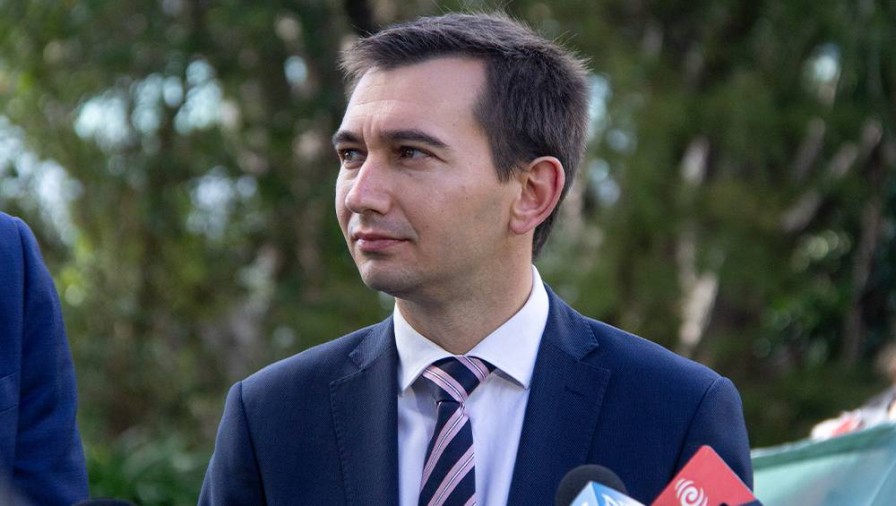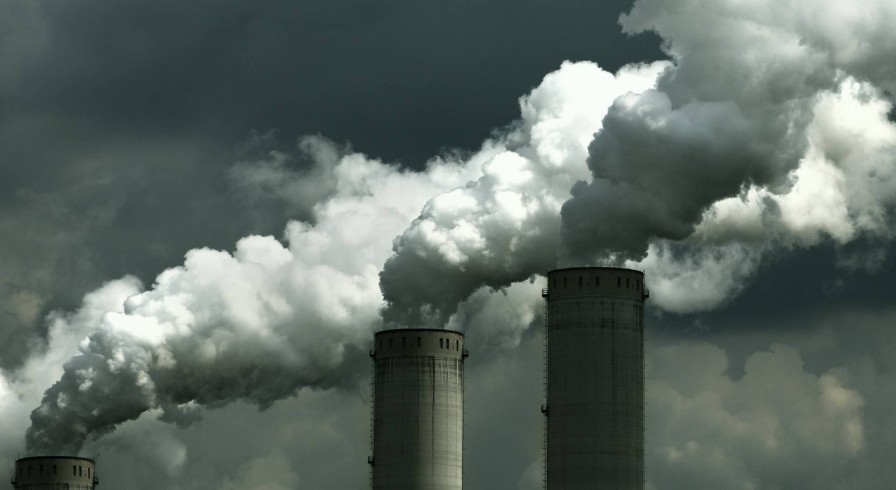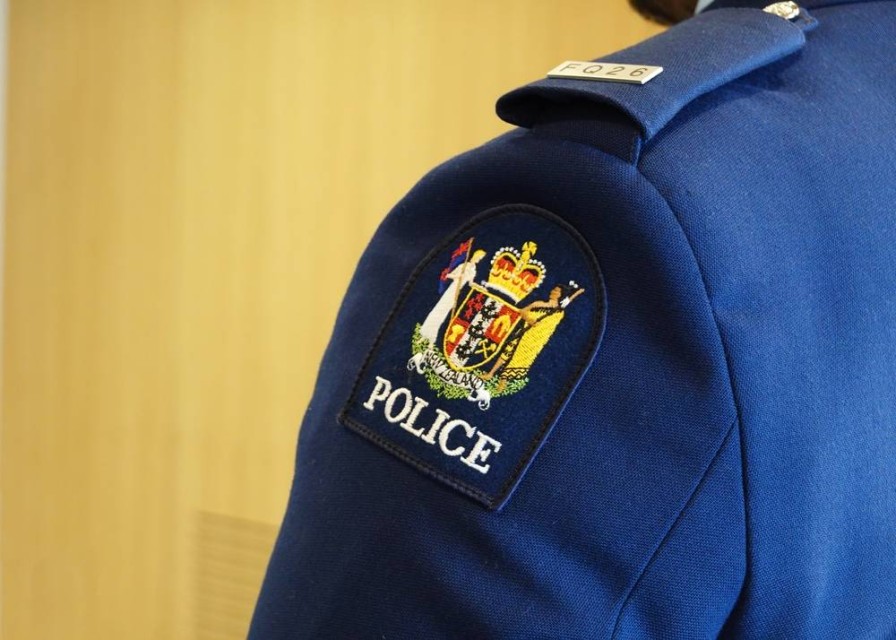Long tunnel, mining coal, cutting emissions, inflation and jobs
ANALYSIS: The Government says frontline public service jobs are not being axed, but critics argue otherwise.
ANALYSIS: The Government says frontline public service jobs are not being axed, but critics argue otherwise.
For a government which cancelled the Cook Strait ferry project and ridiculed the previous Labour Government’s plans for the Auckland Harbour it seemed oddly incongruous that this week it suggested building a multi-billion dollar, four-kilometre tunnel under Wellington.
Transport Minister Simeon Brown said the ‘Long Tunnel’ option had the potential to cut the travel time through to the airport by up to 15 minutes, compared with an estimated 2-3 minutes’ saving with the proposed shorter tunnel through Mt Victoria.
“The option would also see better urban amenity through greater reallocation of surface road space to active modes and public transport in the CBD and greater opportunities for housing intensification. Enhanced regional connectivity to the airport and hospital would also be achieved with reduced city and state highway congestion,” Brown said.
He said to rebuild the economy and ensure people and freight could get to where they needed to quickly and safely, infrastructure needed to be delivered at pace. He looked forward to receiving advice from the New Zealand Transport Agency on the technical feasibility, cost and funding and financing options for this proposal.
And that surely will be the test. Any costing NZTA puts on the project might as well be at least doubled, if not more, based on, for example, the blow-out in cost of the now derailed Auckland light rail project, another grand scheme designed to ease access to an airport and generate greater housing intensification. Just as the National Coalition scrapped that plan, it seems even more miraculous that a four kilometre tunnel to Wellington Airport will go ahead.

Transport Minister Simeon Brown.
At the same time Northland businesses released a report from the New Zealand Institute of Economic Research outlining the economic benefits of building a four-lane expressway all the way between Auckland and Whangārei.
Both Transporting New Zealand and Infrastructure New Zealand back Northland Corporate Group’s call for the road to be built.
“Transporting heavy freight through Northland can be perilous and this inhibits Northland’s ability to service Auckland. However, with strategic infrastructure investments, billions of dollars in economic potential could be unlocked, benefiting not only Northland, but also the wider country,” Transporting New Zealand chief executive Dom Kalasih said.
Both he and Infrastructure New Zealand chief executive Nick Leggett said the Government should push hard to build the road using a public private partnership to get it done sooner and to a high standard.
This week Resources Minister Shane Jones upset environmentalists, but made the mining sector happy, by announcing that changes to the Resource Management Act would align consenting of coal mines with other forms of mining.
“The inconsistent treatment of coal mining compared with other extractive activities is burdensome red tape that fails to acknowledge that the impacts of physically extracting coal are similar, if not the same, as those occurring in mining other minerals,” Jones said.
Environmentalists are not just worried by the direct environmental impacts of coal mining but also the contribution coal makes to the country’s greenhouse gas emissions.
And the same week the Ministry for the Environment reported that New Zealand’s gross greenhouse gas emissions fell 4% in 2022, the third successive year they had fallen. But there is a worry that the downward trajectory in emissions might reverse as the Coalition Government scraps initiatives like the clean car discount and the Government Investment in Decarbonising Industry (GIDI) fund, while at the same time paving the way for more coal mining.

Resources Minister Shane Jones.
Jones argues coal is still needed to keep the lights on when not enough renewable energy is available and that in the past New Zealand had imported Indonesia coal to do just that.
The mining lobby group Straterra welcomed the decision and argued coal still needed to be used as a transition fuel.
“There is still a need for coal, both in New Zealand and globally. Until there are affordable, accessible, readily available alternatives, supply must remain. If domestic supply is cut off, we will be importing coal,” Straterra chief executive Josie Vidal said.
Jones made it clear on RNZ’s Morning Report he would not bow to the demands of the “Green Politburo”. The changes will be included in the first Resource Management Act Amendment Bill, which should be introduced to Parliament next month.
Meanwhile, Climate Change Minister Simon Watts said the new data on emissions showed the higher use of renewable energy was a key contributor to the lower gross emissions in 2022.
“Transitioning to cleaner energy sources, improving energy efficiency, and ensuring that projects which help to lower emissions are fast tracked is part of our wider plan to rebuild the economy,” Watts said.
“Harnessing the economic opportunities of our mining sector, including our extensive coal resources, will be crucial to the economic prosperity of New Zealand and to ensuring we have a secure supply of fuels and minerals to keep our economy growing,” Jones said in his statement.
Who's right?
Changes to the rules around coal mining are just part of a wider range of changes the Government is making in a range of amendments before it fully reforms the Resource Management Act. These include, for instance, extending pre-1991 permits for coastal ports to continue operating as they have been for another 20 years.

New Zealand's emissions are coming down.
The latest consumer price index also confirmed this week that annual inflation had dropped to 4%, getting ever closer to the Reserve Bank’s 1-3% target band. But domestic inflation remains sticky, leaving many economists to wonder when the bank might start cutting interest rates.
Acting Finance Minister Chris Bishop – Nicola Willis is in Washington for a range of meetings with her international counterparts – said the latest figure was a far cry from the 7.3% inflation people endured during 2022.
“The Government has a plan to get the cost of living under control and help Kiwis get ahead. That includes reducing taxes for hardworking Kiwis, FamilyBoost childcare tax credits, ensuring the Reserve Bank is focused solely on getting inflation under control, reducing wasteful government spending and cutting red tape to make it easier and cheaper to get things done,” Bishop said.
But reducing wasteful spending does not come without cost.
In the latest round of cuts nearly 450 jobs are to be axed at Oranga Tamariki and the Ministry of Education is cutting about 565 jobs.
According to RNZ’s count of public service cuts more than 3000 jobs have now been axed across all government agencies so far. That does not mean 3000 people have lost jobs because in most cases agencies are reaching their job cut targets by a combination of laying people off and not filling vacancies.

Public sector job cuts are starting to bite.
Oranga Tamariki chief executive Chappie Te Kani said front-line staff were not affected but the cuts, but critics suggest they will be hit.
Children’s Commissioner Claire Achmad has said she would have a close look at the proposed cuts to see how they might impact the lives of children and young people.
Meanwhile, the cuts at the Ministry of Education will affect support staff.
Labour leader Chris Hipkins called it a “dark day” for Kiwi children.
“The size of cuts at Education, 565 roles, means frontline services will be affected. These are people who work directly with teachers and principals to improve education delivery in our regions. They are frontline roles and those who support frontline roles,” Hipkins said.
But Prime Minister Christopher Luxon, who is on a week-long trip through Singapore, Thailand and the Philippines, rejects that and says his government will be boosting spending on key areas like health and education.

Labour Party leader Chris Hipkins.
Meanwhile, Police Minister Mark Mitchell has expressed disappointment that police officers have rejected the Government’s latest pay offer. The matter will now go to arbitration.
Mitchell said the new offer had matched the overtime rate the Police Association had asked for, included a $1500 cash payment and locked in a pay increase in the third year well ahead of the forecast rate of inflation.
“The Government has been very open about the financial challenges we’ve inherited, and despite the challenging environment this was a markedly better offer,” he said.
But not good enough to convince police officers – who are at the frontline of the Government’s get-tough-on-crime approach – and who rejected the offer, with more than 75% voting no.
“Our members were looking for a sincere effort by government to correct the crippling erosion of police living standards caused by the cost-of-living crisis and to recognise the increased challenges and dangers police officers face in keeping New Zealanders safe. This offer fails to provide any real attempt to remedy the steady decline in officers’ salaries, particularly when measured against comparable professions’ salaries, such as teachers and nurses,” Police Association president Chris Cahill said.
More headaches for the Government as it finalises next month’s Budget.
Brent Edwards is NBR's political editor.